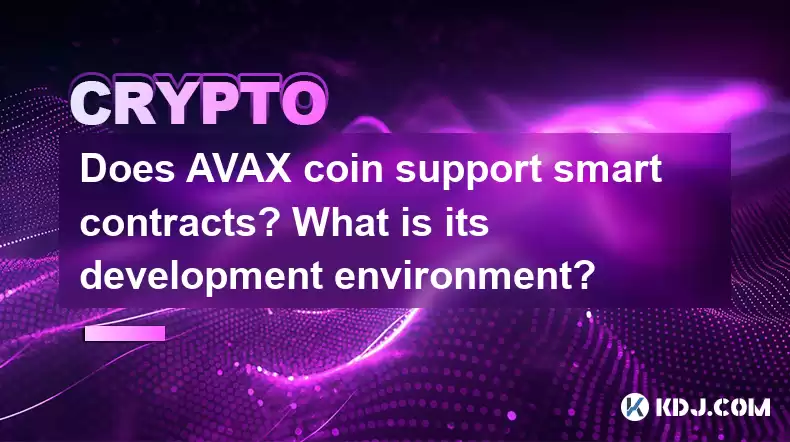-
 Bitcoin
Bitcoin $120100
1.16% -
 Ethereum
Ethereum $4329
2.25% -
 XRP
XRP $3.192
-0.22% -
 Tether USDt
Tether USDt $1.000
-0.01% -
 BNB
BNB $805.2
0.47% -
 Solana
Solana $178.7
-1.85% -
 USDC
USDC $0.9998
0.00% -
 Dogecoin
Dogecoin $0.2305
-1.62% -
 TRON
TRON $0.3445
1.17% -
 Cardano
Cardano $0.7940
-1.28% -
 Hyperliquid
Hyperliquid $44.44
-1.20% -
 Chainlink
Chainlink $21.86
-2.42% -
 Stellar
Stellar $0.4423
-0.15% -
 Sui
Sui $3.728
-3.84% -
 Bitcoin Cash
Bitcoin Cash $584.8
2.19% -
 Hedera
Hedera $0.2524
-2.87% -
 Ethena USDe
Ethena USDe $1.001
-0.02% -
 Avalanche
Avalanche $23.66
-0.78% -
 Litecoin
Litecoin $124.5
0.39% -
 Toncoin
Toncoin $3.399
1.77% -
 UNUS SED LEO
UNUS SED LEO $9.002
-0.44% -
 Shiba Inu
Shiba Inu $0.00001327
-2.10% -
 Uniswap
Uniswap $11.42
2.58% -
 Polkadot
Polkadot $3.957
-2.50% -
 Cronos
Cronos $0.1696
4.50% -
 Dai
Dai $1.000
0.00% -
 Ethena
Ethena $0.8139
3.04% -
 Bitget Token
Bitget Token $4.442
-0.38% -
 Monero
Monero $271.2
2.93% -
 Pepe
Pepe $0.00001168
-2.91%
Does AVAX coin support smart contracts? What is its development environment?
Avalanche (AVAX) supports smart contracts via multiple VMs, primarily using Solidity, offering a robust ecosystem with tools and resources for developers to build and deploy dApps efficiently and securely.
Mar 12, 2025 at 01:46 pm

Key Points:
- Avalanche (AVAX) does support smart contracts, enabling the creation of decentralized applications (dApps).
- Avalanche utilizes a unique architecture supporting multiple virtual machines (VMs), including the Ethereum Virtual Machine (EVM) for compatibility.
- The primary development environment for Avalanche smart contracts is based around Solidity, the dominant language for Ethereum smart contracts. Other languages are also supported depending on the chosen VM.
- Avalanche's development ecosystem includes various tools and resources to aid developers in building and deploying smart contracts.
Does AVAX Coin Support Smart Contracts?
Yes, Avalanche (AVAX) robustly supports smart contracts. This is a crucial feature, allowing developers to build decentralized applications (dApps) on its platform. Unlike some cryptocurrencies that are primarily focused on payments, Avalanche's design prioritizes scalability and smart contract functionality. This capability is a major draw for developers seeking a platform to build complex and efficient dApps. The ability to execute smart contracts efficiently and securely is essential for the growth and adoption of any blockchain platform, and Avalanche addresses this need directly.
What are the Virtual Machines (VMs) Supported by Avalanche?
Avalanche's architecture distinguishes itself through its support for multiple virtual machines (VMs). This multi-VM approach enhances flexibility and compatibility. The most significant VM is the Ethereum Virtual Machine (EVM). This is crucial as it allows developers familiar with Ethereum's Solidity programming language to easily transition their skills and existing smart contracts to the Avalanche platform. This EVM compatibility significantly broadens Avalanche's appeal to a wider developer community. Beyond the EVM, Avalanche supports other VMs, catering to diverse programming preferences and project requirements. This adaptability makes Avalanche a versatile platform for various blockchain applications.
What is the Primary Development Environment for Avalanche Smart Contracts?
The primary development environment for Avalanche smart contracts centers around Solidity. Solidity's popularity stems from its extensive use within the Ethereum ecosystem, making it a familiar and well-documented language for many developers. This familiarity is a significant advantage, as developers can leverage their existing Solidity knowledge to build dApps on Avalanche with relative ease. The abundance of resources and community support surrounding Solidity further contributes to its prominence in Avalanche development. However, other programming languages might be used depending on the chosen virtual machine.
How to Develop Smart Contracts on Avalanche?
Developing smart contracts on Avalanche involves several key steps:
- Choose a Development Environment: Set up a development environment, typically involving tools like Remix (an online IDE) or a local setup with tools like Truffle or Hardhat. These tools provide frameworks for compiling, testing, and deploying smart contracts.
- Write the Smart Contract: Write the smart contract code in Solidity (or another language supported by your chosen VM). This involves defining the contract's functions, variables, and interactions.
- Compile the Smart Contract: Use the compiler (like the Solidity compiler) to transform the human-readable Solidity code into bytecode that the Avalanche blockchain can understand and execute.
- Deploy the Smart Contract: Deploy the compiled smart contract to the Avalanche network. This involves interacting with the Avalanche blockchain through tools provided by the development environment.
- Test the Smart Contract: Thoroughly test the deployed smart contract to ensure its functionality and security. This typically involves simulating various scenarios and interactions.
What Tools and Resources are Available for Avalanche Smart Contract Development?
Avalanche provides a growing ecosystem of tools and resources to support developers. These include:
- Comprehensive Documentation: Avalanche offers detailed documentation covering various aspects of smart contract development, including tutorials, guides, and API references.
- Community Support: A vibrant community of developers actively contributes to forums, providing assistance and support to fellow developers.
- SDKs and Libraries: Software Development Kits (SDKs) and libraries are available to simplify the development process by providing pre-built functions and tools.
- Example Projects: Access to numerous example projects allows developers to learn from existing implementations and adapt them to their own needs. This practical approach speeds up the learning curve.
Common Questions and Answers:
Q: Are there any gas fees associated with deploying and using smart contracts on Avalanche?
A: Yes, like most blockchains, Avalanche charges transaction fees, often referred to as "gas fees," for deploying and interacting with smart contracts. The fees depend on network congestion and the complexity of the transaction.
Q: How secure is the Avalanche platform for smart contract deployment?
A: Avalanche employs robust security measures to protect against various attacks, however, no system is entirely invulnerable. Developers should always practice secure coding techniques and thoroughly audit their smart contracts before deployment.
Q: Can I use existing Ethereum smart contracts on Avalanche?
A: If your Ethereum smart contract is written in Solidity and utilizes only features compatible with the EVM, it's highly likely you can deploy it to Avalanche with minimal or no modifications. However, thorough testing is always recommended.
Q: What are the advantages of developing smart contracts on Avalanche compared to other platforms?
A: Avalanche offers advantages such as high throughput, low transaction fees (compared to some other networks), and its multi-VM architecture enabling flexibility and compatibility with various programming languages. Its fast transaction speeds are also a significant benefit.
Q: Where can I find more information about Avalanche smart contract development?
A: The official Avalanche website and its documentation provide comprehensive information. You can also find numerous tutorials and resources on platforms like YouTube and developer forums dedicated to Avalanche.
Disclaimer:info@kdj.com
The information provided is not trading advice. kdj.com does not assume any responsibility for any investments made based on the information provided in this article. Cryptocurrencies are highly volatile and it is highly recommended that you invest with caution after thorough research!
If you believe that the content used on this website infringes your copyright, please contact us immediately (info@kdj.com) and we will delete it promptly.
- Bitcoin, Solana, MAGACOIN FINANCE: Navigating the 2025 Crypto Landscape
- 2025-08-12 00:30:13
- Cardano, ADA Holders, and Layer Brett: A Meme Coin with Real Utility?
- 2025-08-12 00:50:12
- Bitcoin, Michael Saylor, and Savvy Investors: A New Era of Digital Assets
- 2025-08-12 00:30:13
- Crypto Presales in 2025: Spotting the Next Big Thing with Analyst Insights
- 2025-08-12 00:50:12
- Cloud Mining in 2025: Bitcoin, Litecoin, and the Quest for Passive Income
- 2025-08-12 00:55:32
- Token Security, Agentic AI, Cybersecurity Guide: Navigating the New Frontier
- 2025-08-11 23:00:12
Related knowledge

How to purchase Aragon (ANT)?
Aug 09,2025 at 11:56pm
Understanding Aragon (ANT) and Its PurposeAragon (ANT) is a decentralized governance token that powers the Aragon Network, a platform built on the Eth...

Where to trade Band Protocol (BAND)?
Aug 10,2025 at 11:36pm
Understanding the Role of Private Keys in Cryptocurrency WalletsIn the world of cryptocurrency, a private key is one of the most critical components o...

What is the most secure way to buy Ocean Protocol (OCEAN)?
Aug 10,2025 at 01:01pm
Understanding Ocean Protocol (OCEAN) and Its EcosystemOcean Protocol (OCEAN) is a decentralized data exchange platform built on blockchain technology,...

Where can I buy UMA (UMA)?
Aug 07,2025 at 06:42pm
Understanding UMA and Its Role in Decentralized FinanceUMA (Universal Market Access) is an Ethereum-based decentralized finance (DeFi) protocol design...

How to buy Storj (STORJ) tokens?
Aug 09,2025 at 07:28am
Understanding Storj (STORJ) and Its Role in Decentralized StorageStorj is a decentralized cloud storage platform that leverages blockchain technology ...

Where to find the best price for Audius (AUDIO)?
Aug 11,2025 at 04:01pm
Understanding the Basics of Ethereum StakingEthereum staking refers to the process of locking up ETH tokens to support the security and operations of ...

How to purchase Aragon (ANT)?
Aug 09,2025 at 11:56pm
Understanding Aragon (ANT) and Its PurposeAragon (ANT) is a decentralized governance token that powers the Aragon Network, a platform built on the Eth...

Where to trade Band Protocol (BAND)?
Aug 10,2025 at 11:36pm
Understanding the Role of Private Keys in Cryptocurrency WalletsIn the world of cryptocurrency, a private key is one of the most critical components o...

What is the most secure way to buy Ocean Protocol (OCEAN)?
Aug 10,2025 at 01:01pm
Understanding Ocean Protocol (OCEAN) and Its EcosystemOcean Protocol (OCEAN) is a decentralized data exchange platform built on blockchain technology,...

Where can I buy UMA (UMA)?
Aug 07,2025 at 06:42pm
Understanding UMA and Its Role in Decentralized FinanceUMA (Universal Market Access) is an Ethereum-based decentralized finance (DeFi) protocol design...

How to buy Storj (STORJ) tokens?
Aug 09,2025 at 07:28am
Understanding Storj (STORJ) and Its Role in Decentralized StorageStorj is a decentralized cloud storage platform that leverages blockchain technology ...

Where to find the best price for Audius (AUDIO)?
Aug 11,2025 at 04:01pm
Understanding the Basics of Ethereum StakingEthereum staking refers to the process of locking up ETH tokens to support the security and operations of ...
See all articles

























































































